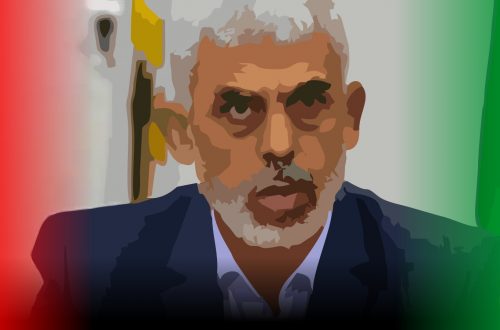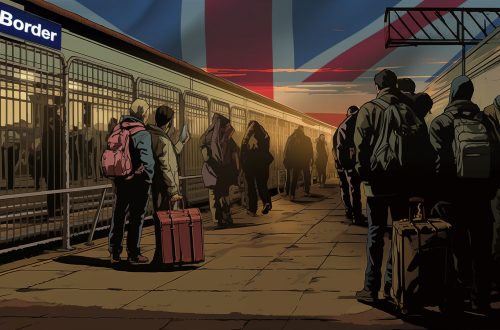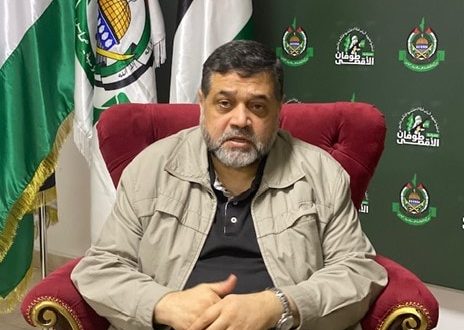(This is a guest post by Mira Vogel)
I feel baffled and alarmed by the amount of time and money lavished on mainstreaming the academic boycott of Israel in my trade union (University and College Union, or UCU). Boycott is a very serious thing to ask British academics to undertake. It’s a request to discriminate against fellow academics on national grounds alone, as part of a political campaign. This particular political campaign is highly exceptional, doesn’t affect the things it claims to be against, has alienated Israeli and Jewish students and academics, and runs counter to UCU’s professed values on academic freedom, anti-racism and bullying and harassment. The troubling thing about UCU is that, energetically as it brandishes these values at employers, it seems incapable of applying them to itself.
Well, maybe I’m prejudiced. After all, another year another boycott. Perhaps this year’s – Resolution 25 – has been transformed and refreshed by UCU’s National Executive Committee and a thesaurus into something entirely free from the dodginess which got the previous ones thrown out. One way to find out is to look at the guidance.
Given that this boycott campaign has been running since 2002, that it has been thoroughly discussed every time it has come up and can be thought of as mature, and that there is a big question mark over its legality, you’d expect a number of things to be in place. It should be trying to convince anybody worth convincing – namely academics actually in a position to pontificate to Israeli peers, refuse a collaboration or avoid a conference – that boycotting Israel is a serious, responsible idea. It should care about its boycotters, help them to present themselves as informed, conscientious people whose opinions matter and – importantly – help them to avoid incriminating themselves. It should show a commitment to distinguishing between different types of links on a case-by-case basis. It should take academic freedom and other academic values seriously by making it known exactly what higher good they are being sacrificed for. And it should protect individuals from boycott.
So what guidance is there? Hardly a thing. Not UCU’s Policy on International Greylisting and Boycotts, which the NEC ignored when they tabled their boycott motion (as it is widely regarded) this Congress. Virtually nothing from the Palestinian Speaking Tour where Lisa Taraki outlined some crude criteria but kept emphasising that boycott was a matter of individual judgement, not an exact science. Only two or three indemnifying lines from the British Committee for Universities for Palestine (BRICUP) site.
Then there’s the Palestinian Campaign for the Academic and Cultural Boycott of Israel (PACBI). PACBI is the division of the broader movement for boycott, divestment and sanctions against Israel which aims to bring about a total social boycott. It has influence in UCU, which circulated its insultingly vague and literally pointless boycott call last year. We don’t know exactly who PACBI are because they don’t tell us, but on the front page of their site there’s a link that looks at least partially relevant to would-be British academic boycotters – the Criteria for Palestinian-Israel Joint Projects. Strange that they’re in Arabic only – PACBI is an English-language site.
Thanks to davem (author of the very interesting Syrian Journal parts 1-8 which sadly are missing en route of the recent Harry’s Place site migration) we have a translation, below. It tells us quite unequivocally that PACBI wants to divert all academic collaborations into “the struggle for liberation, establishing a land, the returning (of refugees) and equality”. All joint projects must be politicised as part of the “civil resistance against tyrannical Israeli colonialism, which is founded on the ideology of Zionism-Racism”. In order to be exempt from boycott, projects must be “clearly serving the goals of the Patriotic Palestinian struggle”. Particularly notable, because life-threatening, PACBI demands that Palestinians refuse projects funded by UNESCO, the UN and the WHO, complaining that they avoid “any condemnation of the despotic occupation and other forms of Israeli tyranny on the Palestinian people“.
“…we must make clear our position in rejecting these projects, some of which are under the auspices of UN organizations, which call for political neutrality and / or staying clear of politics.”
“The participation projects which call for “political neutrality” or aim to develop scientific research, health, water consumption, or art/technical fields, i.e. which don’t condemn the oppressive occupation, are misleading and harmful.”
That PACBI holds Palestinian lives cheap is not news, but what does PACBI ultimately want? We don’t know what a lot of the terms PACBI uses mean – ‘liberation’, ‘Zionism’, ‘refugees’ – because they aren’t defined. But these issues are the sticking points of the conflict, and failure to define them in the context of a boycott call demonstrates a rejectionist agenda. PACBI wants either complete capitulation to this rejectionist agenda, or it wants to be the sole beneficiary of the research grants, cutting out Israel. As if you can manage your water supply in isolation from your neighbours. As if you can plan for climate change in isolation from your neighbours. As if your neighbour’s work on Alzheimers is of no concern to you. This is an exercise in totalitarianism – the anti-Israeli Israeli-Palestinian Brain Research Conference, anti-Israeli space shuttle experiment, anti-Israeli Stream Restoration Project. Anti-Israelism is the difference between a good joint project and a “misleading and harmful one”. PACBI isn’t interested in ending the conflict and it’s not interested in research or development. It just wants to punish Israel – for a conflict it helps to sustain.
It’s getting boring to repeat this but it needs to be repeated – when Omar Barghouti malignly claims on behalf of PACBI in a letter attempting to wreck the UNESCO-funded Israeli-Palestinian Science Organisation that “normal relations between peoples can only flourish after oppression has ended, not before and not as a prelude to it”, he wilfully ignores the Palestinian and wider regional share of responsibility for oppression and for the conflict – the continuous attacks on Jews in the region since the early 1900s, the negative views about Jews (not Israelis) widely held in the Middle East, the ghosting out of the Holocaust in Arab education, Hamas’s active pushing of Holocaust denial and other antisemitism and – one of the most important cultural gulfs – the low levels of Arabic spoken by Israeli Jews. These problems are distinct from the occupation, won’t go away with the end of the occupation, and need to be addressed independently of high level negotiations to end the occupation. This is not a case of international funding bodies imposing humiliating conditions on Palestinians – this is PACBI attempting to impose preposterous conditions on UNESCO, WHO, and the UN which in 1947 voted for a Jewish state in the first place.
PACBI is rotten – if you want to support Palestinians there are plenty of other initiatives. Don’t expect to fix this conflict unless you’re a high level negotiator, in government somewhere, or a combatant. The rest of us need to work at the level of links. In his speech to Leeds UCU, Jon Pike outlined a number constructive academic projects which need support. Palestinians suffer from acute restrictions on freedom of movement, particularly regarding Gaza, but also within the West Bank – we aim to post these on Engage and we urge you to get involved. One campaign, soon to be launched, is Let Palestinians Study. Beyond education, there are several resilient conflict resolution organisations such as OneVoice which operates grass-roots parallel programmes, mostly run by students, to empower peacemakers in Israel and Palestine. Boycotters attack them and they need our support. There are Israeli organisations such at B’Tselem and Gisha which advance human and civil rights for everybody, and there’s The Abraham Fund which, to recent UN endorsement, addresses Arab Israeli social exclusion in far-reaching ways and has a new UK division. These initiatives need our encouragement and they could do with our money too. What nobody needs, though, is a boycott.
Translation of criteria for Palestinian-Israeli joint projects
The original document in Arabic is available in .pdf format on the PACBI site.
This campaign believes in the sanctions against Israel in various fields / spheres – is considered part of the civil resistance against tyrannical Israeli colonialism, which is founded on the ideology of Zionism-Racism.
Therefore it’s considered / believed that it [the boycott] must be applied in the realms of science and academia to be effective in the struggle to end the oppression. Just as had proved to be the case in South Africa [international boycott against Apartheid]
So, this campaign calls for the complete boycott of all forms of work, co-operation and participation projects with all the different Israeli authorities / sides, with the exception of those activities and relationships which take place in the context which is clearly serving the goals of the Patriotic Palestinian struggle.
And while some Palestinian academics, intellectuals, and professionals are participating in shared projects for the sake of individual material, morale or professional goals – the overwhelming majority are participating in them are doing so out of their conviction to serve the goals of the national struggle, which enhance us all.
Unfortunately, an overwhelming majority of these projects, as we have learned from our experience, inflict a major blow to the struggle against oppression, especially in the world stage, for allparticipants.
So because of this it requires a need to formulate clear criteria governing the necessary application of boycotting these projects.
The fundamental principle of the criteria is the necessity to boycott any activity or participation project which causes more harm than good to the Palestinian struggle for liberation, establishing a land , the returning (of refugees) and equality.
The participation projects which call for “political neutrally” or aim to develop scientific research, health, water consumption, or art/technical fields, i.e. which don’t condemn the oppressive occupation, are misleading and harmful.
Specifically because not only because they overlook the (Israeli)persecution and injustices, but they also contribute in giving it legitimacy.
In addition they contribute in consolidating the picture people have of Israel as a nation distinguished in science, research, art and technical disciplines.
Entering into relationships described as “non-political” or “anti-political” in the current circumstances of oppression is in actuality taking a political position. It is in fact deliberately abstaining from the resisting the oppression, or even rationalizing
with it.
Some of the participants justify their involvement with Israelis with the excuse that they benefit from (working with) the prominent Israelis from the various fields of health, agriculture, and information technology. And that their views benefit the establishment and development of our institutions in preparing our country’s future [i.e. building a better future for our country]
(This view overlooks a central issue. See :1)
Israel invests in these projects in order to cover its crimes and specifically to prevent us from achieving our national rights.
Also any benefits remain practically insignificant in comparison to the harm caused by these projects (see: 2) and anyway there are other developed countries in the world (which provide financial backing to the projects!).
With these countries we are able to achieve high levels of training and development without having to legitimize and maintain the Israeli oppression.
In addition, from a purely pragmatic view, it’s been proved that for the last 10 years or more these various shared projects, even the “non-political” ones, have failed rapidly in achieving any advancement.
This is due to the fundamental obstruction preventing the progression in all fields was and still is the occupation.
In return Israel invests in these projects to legitimize to the world its colonialization and racism and also distorts how the world views its crimes against the Palestinian people, with it’s 3 elements [no idea what this refers to, may as well leave the ‘3 elements’ bit out]
It’s (Israel’s) gains were a lot more compared to the crumbs that the Palestinians who took part in these projects received.
So we must make clear our position in rejecting these projects, some of which are under the auspices of UN organizations, which call for political neutrality and / or staying clear of politics.
And it’s noticed recently that there’s been an increase in these shared – projects in scientific research, medical care, under the auspices of the international institutions such as UNESCO and the WHO.
The common denominator between them all is the avoidance of any condemnation of the despotic occupation and other forms of Israeli tyranny on the Palestinian people.
This is the complete opposite of this organizations role when it was boycotting South Africa in the past (during the Apartheid era)
On the other hand shared projects which contribute in ending the occupation and eliminating all other forms of Israeli tyranny, before we can accept participation in them we must study and analyze them (according to the criteria suggested) to be sure that they are in accordance with the Palestinian patriotic programme – on one hand.
And on the other hand that they do not require that we make concessions to even one of our rights (as this is) unacceptable conduct to the Palestinian people. Because that inflicts a major blow to the Palestinian cause, even if there were to be some scientific and technical benefits from these projects.
However in an extreme case (in case of emergency), such as the spread of an epidemic, major natural or environmental disaster, that very clearly necessitates Israeli – Palestinian co-operation.
Then in that case obviously the principles of the boycott should be subject to i.e. give way to higher moral principles connect with the preservation of human life.
The decision tree follows, translated on MidEastWeb.
(Thanks to davem for the translation.)


